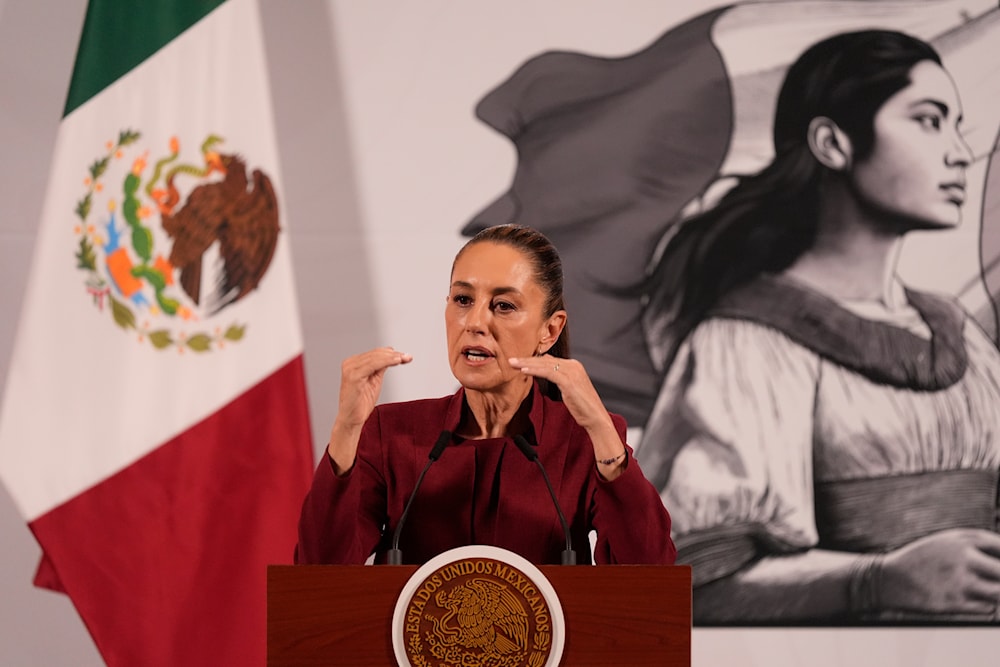Mexico to boost steel, aluminum, and car production: President
Mexican President Claudia Sheinbaum announces plans to boost domestic production of steel, aluminum, and cars, with decrees set to be published in May.
-

Mexican President Claudia Sheinbaum gives her morning press conference at the National Palace in Mexico City on April 2, 2025. (AP)
Mexican President Claudia Sheinbaum announced that Mexico plans to enhance and increase the production of steel, aluminum, and cars for domestic use in response to US tariffs.
"[We intend] to strengthen and expand manufacturing of cars for the domestic market. We have a plan, we have already spoken to car manufacturers. The goal is that most cars purchased domestically should be produced in the country in dialogue with different countries," the president said, presenting Mexico's economic development plan.
Her speech was broadcast on X.
Read next: Mexico to impose own tariffs in retaliation to Trump's
"The relevant decrees will be published on May 16. On May 5, decrees designed to strengthen the domestic market in the field of steel and aluminum will be published," Sheinbaum said.
US President Donald Trump announced 25% tariffs on imports of all foreign cars, starting April 5. On March 12, the United States began to levy a 25% tariff on all supplies of steel and aluminum to the country.
Trump announces 'reciprocal tariffs' worldwide
Trump on Wednesday introduced sweeping tariffs, branding the move as "Liberation Day" in a bid to protect American industry, a decision that risks triggering a global trade war.
Speaking from the White House Rose Garden, flanked by US flags, Trump considered that the United States had been "looted, pillaged, raped and plundered by nations near and far, both friend and foe alike."
As Trump was speaking, the dollar fell 1% against the euro and slipped against other major currencies.
While he did not immediately outline the full scope of the tariffs, the 78-year-old Republican stated that he was signing an executive order to impose "reciprocal tariffs on countries throughout the world" based on how they treat the US.
Earlier last month, the US expanded its range of tariffs on March 12 as broad duties on steel and aluminum imports came into force "with no exceptions or exemptions," as pledged by the White House, despite multiple countries’ efforts to avoid them.
Trump’s decision to impose 25% tariffs on both metals is expected to increase production costs for various goods, including home appliances, automobiles, and beverage cans, potentially driving up consumer prices.
"It wouldn’t surprise me to see the tariffs pretty quickly show up in prices," Cato Institute research fellow Clark Packard told AFP. He noted that the auto and construction industries—covering both residential and commercial sectors—are among the largest consumers of steel in the United States.

 3 Min Read
3 Min Read










